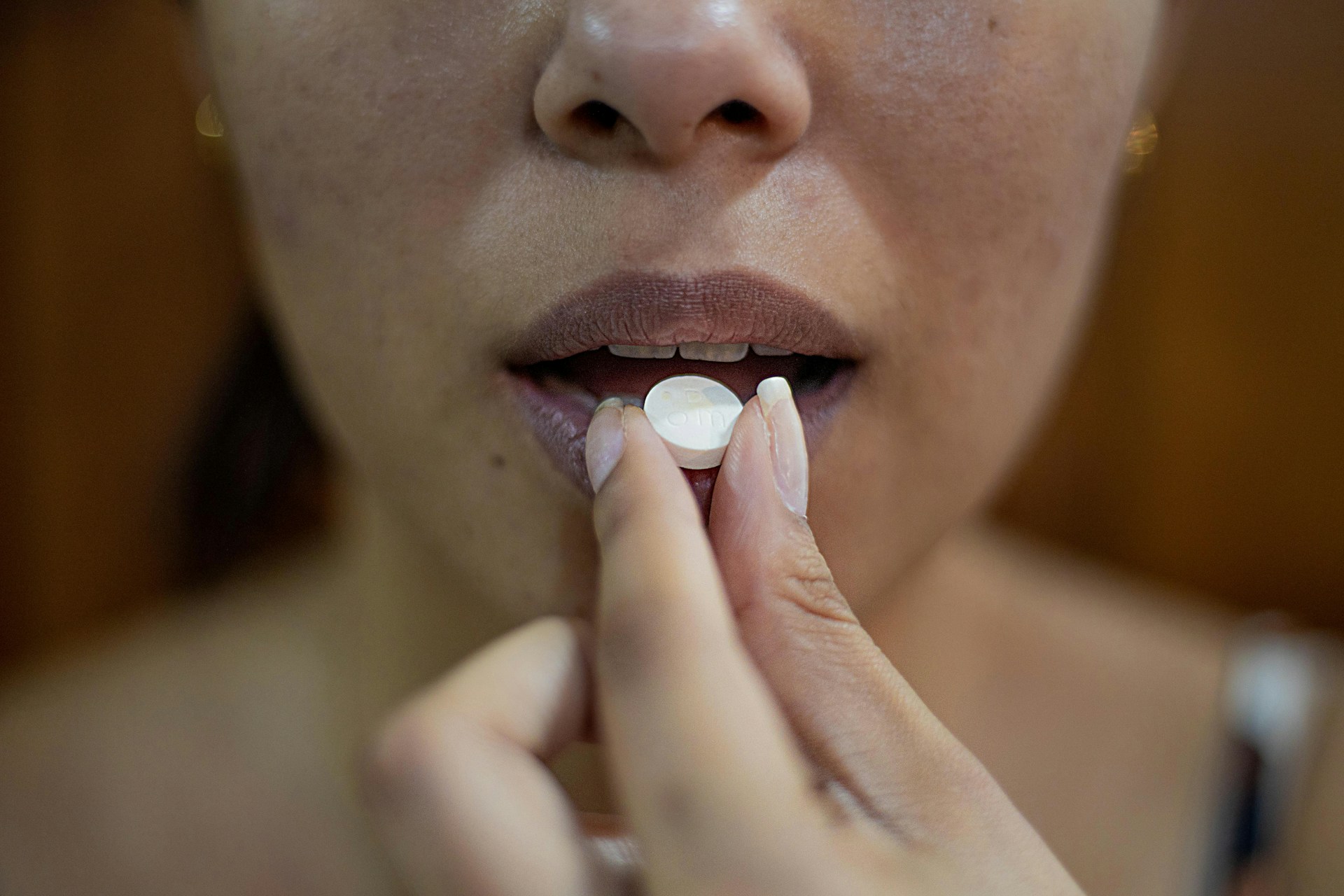
Body + Mind is reader-supported. We may earn an affiliate commission when you buy through some of the links on our site.
Many people love the look of sun-kissed skin and wonder if tanning pills could help them get the desired results without becoming burned.
Tanning pills are supplements that contain ingredients their manufacturers claim will tint the skin to mimic a tan. Branded content often mentions that these products are safe and effective, making them seem like tempting choices for people who want to get tanned skin without the typical risks.

Do tanning pills work? They could cause some noticeable changes. As dermatologist Dr. Amy Kassouf says, tanning pills cause an orangey glow on some skin types. That’s because their active ingredients deposit into the upper layers. However, she cautions that visible effects may not occur in the desired areas. They are typically most obvious in areas with calluses or thicker skin, such as the palms or soles of the feet.
That variability could mean you don’t get the natural-looking tan you’d anticipated. If that happens, it could be hard to address, leaving you with no choice but to wait until the effects wear off.

Do tanning pills work? Sometimes, although probably not to the extent you’d hope. Are they safe? An important thing for people interested in tanning pills to know is that none of these products are FDA-approved. Most are also available as over-the-counter supplements, which creates other potential risks.
Regulators do not oversee such products, which could mean the label details and bottle contents differ. These supplements may also include toxic ingredients not mentioned on the container. Even components normally considered safe could be dangerous in tanning pills because the amounts in the formulation are so high.
Additionally, no products are entirely safe because people’s bodies react differently to them. Even if a close friend says they get great results — and offers photos to prove it — you might not have the same outcomes.
Evidence dating back to the 1990s also shows that tanning pills can have frightening effects. Some experiences related to canthaxanthin, an active ingredient that can appear throughout the body, affecting more than just the skin. Canthaxanthin deposits in the eyes may reduce visual acuity, causing a side effect that could take months to resolve. The professionals who discussed the eye problems also mentioned other symptoms, including cramps, diarrhea, itching and welts.
A less-discussed but still notable issue is that people who take tanning pills may forget to protect themselves from the sun. However, these products don’t contain sunscreen or any other preventive measures.
Some people think that seeing products in stores, on social media accounts and elsewhere means they must work well and are worth trying.
Despite the significant downsides of tanning pills, these products are still easy to find, including on well-known e-commerce sites, such as Amazon. However, since they may not work as well as expected and have associated health dangers, the safer thing to do is to get a tanned look through other methods.
Consider that a good reminder that seeing a product available for sale is not an indicator of its safety or effectiveness. That’s also true if you see tanning pills gushed about by social media influencers. These people typically receive free products or monetary compensation in return for what they say. That means it’s in their best interest to speak favorably about the items, whether or not they’re telling the truth.
Tanning pills seem like a quick, easy way to get a beach-ready skin tone, but they don’t work well and could cause dangerous side effects. The good news is that self-tanning products for home use come in various formulas and are easy to apply.
Start by doing a full-body exfoliation one day before using these products. It removes dead skin cells and prevents the tanner from clinging to those areas, causing an uneven look. Then, follow the manufacturer’s instructions.
No products are risk-free, but self-tanning products are much safer than pills because their main active ingredient — dihydroxyacetone (DHA) — is FDA-approved. Surprisingly, the component is a colorless sugar compound rather than a tint or paint. It works due to a chemical reaction between the DHA’s sugars and the proteins in the upper layers of your skin.
Many of these products also include a temporary dye that makes it easier to achieve an even application by remaining visible as you spread it.

Most people initially feel tempted by tanning pills because they seem like an easy route to their goal. Marketing language may also sway them, especially since many brands or product names feature words such as “nutrition,” “natural” and “health.” Rather than falling into that common trap, remember that safer, more effective methods can achieve your desired results.
Also, know that wanting tanned skin is not a reason to skip the sunscreen. Unfortunately, more people have started doing that, likely due in part to untruths swirling around social media channels. The main one is that sunscreen causes skin cancer. However, it is safe, nontoxic and can even reduce the quantities of precancerous lesions. Sunscreen has that positive effect because it creates a barrier that blocks or absorbs harmful ultraviolet rays.
However, some people use it like a security blanket, thinking they can apply it quickly and stay safe from burns all day. A better approach is to apply such topical products while using other preventive methods. Get started by wearing a wide-brimmed hat and staying in the shade during the hottest part of the day. Reading and following the instructions on the bottle will also give you the best results. Keep in mind that activities such as swimming, drying off with a towel or playing sports could require applying sunscreen more often.
Although some people find tanning pills work, a common issue is that they notice color concentrations in specific areas, making the outcomes look unrealistic. Health professionals warn of potentially dangerous side effects, even if pills give you results. Consider trying safer, more effective methods this year, such as self-tanners. And when you spend time in the sun, use sunscreen to reduce the chances of painful burns and lower your skin cancer risk.
Your email address will only be used to send you our newsletter, and at any time you may unsubscribe. For more information, see our Privacy Policy.